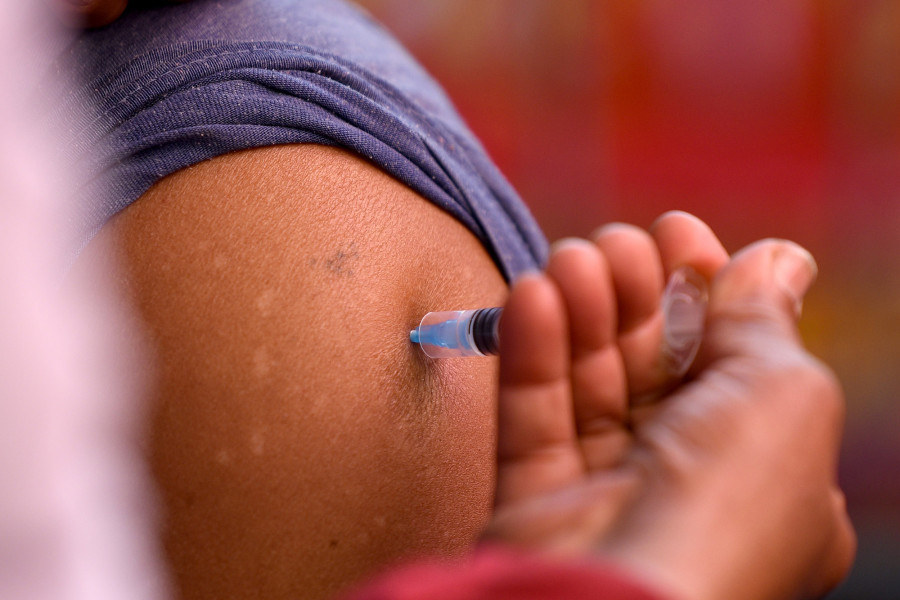Editorial
Jabs for all, no exceptions
Just how long can we remain clueless about where our vaccination plan is headed?
In an action worthy of emulation the world over, Australia has shown the exit gates to tennis player Novak Djokovic who refused to be vaccinated and yet travelled across the world that has been left in tatters due to a raging coronavirus pandemic. A well-known vaccine sceptic, Djokovic was rumoured to have received a vaccine exemption to enter Australia for the Australian Open in Melbourne, but Australia made it clear that the world number one tennis player had no sufficient grounds for exemption permission, and that he was as good as any other individual for a country that has been battling widespread coronavirus infection, although 90 percent of the population over 16 years is fully vaccinated.
Meanwhile, French President Emmanuel Macron has courted controversy with a statement that he is willing to "piss off" the unvaccinated. The president has found himself in the eye of a storm for using unparliamentary language and for being harsher than necessary on the unvaccinated—after all, it is the election season in France, and much of the controversy has to do with the spirit of competitive parliamentary politics. But there is no ignoring the fact that the unvaccinated pose greater risk to the public, and should be counselled, encouraged and convinced to get the jab for their safety as well as the safety of their fellow humans. When the entire world is fighting the pandemic, it is the responsibility of everyone to help support the efforts of global governments to help curb the transmission of the virus.
In Nepal, we have not seen much resistance to the vaccine among the public, but it could also be because there are no major public figures among vaccine sceptics or coronavirus deniers. A Post report on Tuesday found individuals who either consider the coronavirus a hoax or are uninterested in taking the jab. It could very well be the case that the poor and the marginalised, who lack access to clear and concise information and counselling, have been left in the lurch, unable to decide the necessity of getting jabbed. It is all too clear that no one is safe until everyone is vaccinated. It is, therefore, incumbent on the government to continue to disseminate information in a way that reaches those who are on the margins of the country's socio-political map. If information is inaccessible, misinformation, though, is rampant in Nepal, and that has caused a dent in the country's goal to provide timely vaccination to the entire eligible population.
Lack of effective communication has resulted in many people not knowing when to take the second dose after taking the first one, thereby failing to reach vaccination centres in time. A significant section of the population has, therefore, been rendered only partly vaccinated. As the Post reported in November, the Health Ministry is clueless about the whereabouts of about 10 percent of Kathmandu residents who took the first dose of either the AstraZeneca or Vero Cell vaccine, and failed to visit vaccination centres within the prescribed time gap to take the second dose. As of today, the government has failed to come up with concrete plans to find the unvaccinated and get them to take the prescribed doses. It also seems to be clueless whether it is going to get the partially vaccinated take their doses all over again, for it is more likely than not that the partial doses they have taken have been rendered ineffective by now due to a long gap. Just how long can we remain clueless about where our vaccination plan is headed?




 9.7°C Kathmandu
9.7°C Kathmandu














